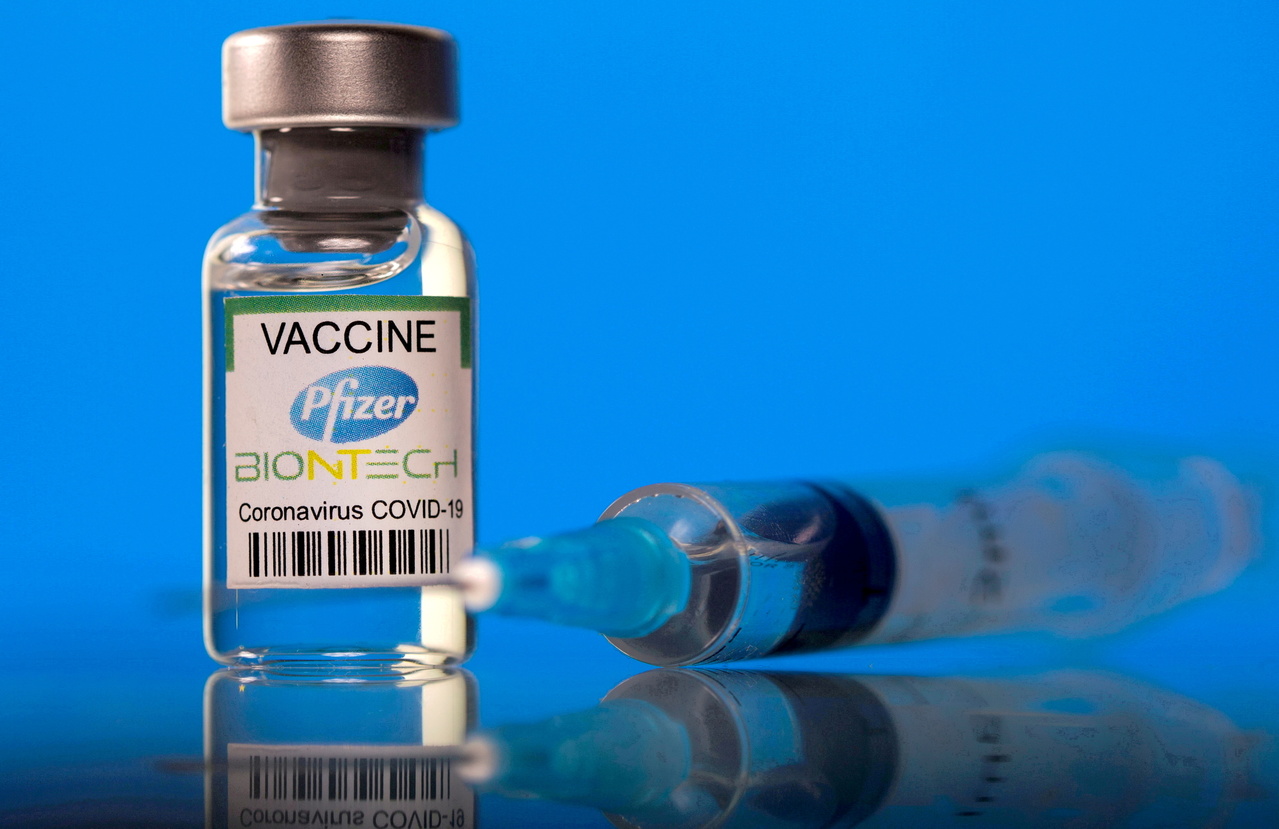Pfizer's Covid-19 vaccine could break sales records again next year
Sign up now: Get ST's newsletters delivered to your inbox

Pfizer has already reached supply deals worth US$29 billion (S$39 billion) in revenue for its vaccine next year.
PHOTO: REUTERS
Follow topic:
WASHINGTON (NYTIMES) - With its Covid-19 vaccine on track this year to generate the biggest single-year sales ever for a medical product, Pfizer on Tuesday (Nov 2) disclosed revenue projections indicating that the shot will likely beat that record or come close in 2022.
The company said while reporting its third-quarter earnings that it expects its vaccine to bring in US$36 billion (S$48.6 billion) in revenue this year.
Pfizer said it has already reached supply deals worth US$29 billion in revenue for its vaccine next year, covering 1.7 billion shots it has already committed to countries around the world.
Billions more in sales are likely to come as the company reaches more deals to sell to governments the four billion shots it expects to produce next year.
Pfizer chief executive Albert Bourla told analysts on Tuesday that most of the company's negotiations are with high- and upper-middle-income countries.
He said he was concerned that poorer countries and their proxies were not lining up to place orders.
"I don't want to reach a level that again the low- and middle-income countries will be behind in their deliveries because they didn't place their orders," he said.
Pfizer says it is selling shots for poorer countries at discounted prices, but many of the world's poorest countries cannot afford to buy doses directly.
They have depended on donations from the United States and other wealthy countries, and on supply from Covax, the United Nations programme to vaccinate the globe.
There remain stark differences in vaccine access. Worldwide, about 75 per cent of all shots that have gone into arms have been administered in high- and upper-middle-income countries, according to Oxford University's Our World in Data project. Only 0.6 per cent of doses have been administered in low-income countries.
The enormous sales figures will translate into billions in profits for Pfizer. The company, which must split its vaccine revenue with development partner BioNTech, said it expects its profit margins on the vaccine to be in the high 20 per cent range next year, the same margin it projected this year.
The doses that will be delivered next year include booster shots, mostly for wealthier countries, and primary immunisations, with an emphasis on second doses, for poorer countries.
A small chunk of the doses will be given to children. The company won authorisation last week for its vaccine to be given in the US to children between the ages of five and 11.
An advisory panel for the Centres for Disease Control and Prevention voted unanimously on Tuesday to recommend paediatric doses for that age group, and children could begin receiving it this week.
Pfizer expects to have initial data from its studies evaluating its vaccine in children between the ages of two and four by the end of December and in children between the ages of six months and one by the end of March, the company's research chief, Dr Mikael Dolsten, told analysts on Tuesday.
Pfizer could get another revenue boost next year from an antiviral pill it is developing for high-risk Covid-19 patients early in their infections. Results are expected within the next few months from a key clinical trial evaluating whether the drug can cut the risk of hospitalisation and death.
Pfizer executive Angela Hwang said the company sees a market of up to 150 million people for the pill. She called it a "durable opportunity", saying that governments may be interested in stockpiling the drug.
A rival pill from Merck, known as molnupiravir, has already been shown to halve the risk of hospitalisation in similar patients. Merck said last week that it expects molnupiravir to generate between US$5 billion and US$7 billion in revenue globally till the end of next year.

